Freshta Ibrahimi: I’m summiting Everest and the women of Afghanistan are coming with me
How mountaineering and the outdoors fuel Freshta Ibrahimi’s life in the UK and her campaign to free the oppressed women of Afghanistan
Mountaineering is not a common concept in Afghanistan, despite 75% of its land being mountainous. The desire to summit peaks – the highest of which hits 7,492m – is not an entire industry like it is in the West. Yet, making a living and a home in the mountains to farm and rear sheep is a common way of life for many.
Freshta Ibrahimi is a mountaineer from Afghanistan. The 32-year-old was born in Iran to Afghan parents during the hostile period of the Taliban’s first reign in the 1990s. When the group were removed from power in 2001, her family returned to Afghanistan where she would grow up fascinated by mountains. She was introduced to mountaineering during her studies at the American University of Afghanistan in Kabul and soon began ascending several of the country’s 5,000-6000m peaks.
“My mother, my parents come from that [rural] generation, they've been living their life in the mountains and growing up with their stories,” Ibrahimi says. “[Mountaineering] it is also not an activity that brings you money or food on the table. It’s critiqued in that way by some of the people.”
Sometimes, locals asked her what the point was in going to the top only to come back down, or they would tell her that summiting some peaks was impossible.
Large expanses of land in the country remain unexplored, and caution is issued over landmines and guerrilla groups that control certain areas, not to mention the harsh conditions of rural life at altitude.
“Sometimes, these kinds of activities can be very successful in a country that is mountainous. Afghanistan can have a great future but because of the conflict, the focus becomes around basic needs: making money or bringing food to the table.
“I feel like that question was exactly around the lifestyle, around what is needed. Even my parents, my very close friends were asking me, ‘when are you going to stop mountaineering?’”
More than a life goal
But Ibrahimi hasn’t stopped. In 2023, she climbed Lobuche East (6,119m) in the Himalayas and to Everest Base Camp (5,364m), among others, which has helped prepare her for an ascent of Everest in spring this year. A successful trip will see her become the first Afghan woman to summit the world’s highest mountain.
“It’s been a long-term dream that I want to do as a mountaineer,” she says. But the expedition is more than a life goal. “I see a great cause and great urgency that as a mountaineer I want to take the voice [of the Afghan women] up to the top of the world so the world can see and hear. I want to show that their place is not underground. Their place can be on top of the world.”
After the Taliban were defeated in 2001, women in Afghanistan were given some rights and freedoms and fought for more. But when the uprising of the Taliban took hold in 2019, Ibrahimi, then in her late 20s, came to the UK as a refugee to seek asylum.
Amnesty International cites 2019 as the world’s deadliest conflict for children with over 2,400 killed or injured in the first nine months. The war continued over the next two years with an estimated 330,000 people displaced and a further estimated 1,200 people killed. In August 2021, the Taliban regained control of the country two decades after they were removed from power.
Practically all women’s rights and freedoms were removed overnight, and further bans and restrictions continue to be introduced. As well as mandating that women must cover their bodies, including their faces, education for girls aged 12 and above was stopped, women can no longer use gyms and parks and, as of August 2024, they’re also no longer allowed to speak in public. Even windows in some buildings where women can be frequently seen have been removed.
“The Taliban, who are in control, see themselves fully in charge of the country and they dare to make these inhuman rules,” says Ibrahimi.
“It has been important to make sure the message is that I'm not going to do it [climb Everest] just to tick off my mountaineering list, I'm doing it because I'm a woman, and before the Taliban took control this time, we have been fighting for rights.
“The generation I grew up in didn't have full freedom in the country. I don't think there is a way to make this generation quiet, they'll find any way [to fight] and this is my way.”
In a statement last year UNWomen, part of the United Nations, said the authorities “subjected Afghan women and girls to more than 70 edicts, directives, and decrees stripping them of fundamental rights.
“Only 1% of women surveyed feel like they have influence over decision-making in their communities; 64% indicate that they do not feel safe leaving their homes by themselves compared to 2% of men; and 8% indicate knowing at least one woman or girl who has attempted suicide since August 2021.”
Creating a community
After Ibrahimi moved to the UK in 2019, she would wait two years during the coronavirus pandemic for her asylum claim to be processed. In that time – like many people during the pandemic – she sought the outdoors and nature, which reignited her connection to mountaineering and helped her create a community.
“The connection with the outdoors, nature [and] just going out helped me a lot to connect with myself. It wasn’t an easy time. COVID-19 hit and I went to a new community where I had no connection. I didn't know anyone in a shared accommodation. I just keep questioning why am I here and why I have done what I have done.”
Ibrahimi started venturing outside near the coast in the North-East.
“Afghanistan is a landlocked country, and [in the UK] I was very close to the seaside,” she says. “I was going out enjoying the sea and I saw that many people go to the seaside for different activities, like surfing, and [I was] thinking of what can I do? I think that feeling of curiosity raised in me that you can do more and connect with nature.”
The connection took her back to the mountains. “I don't know how parks and the sea and just walking in the streets can connect you to the mountain. I cannot verbalise it. But the thing is just movements and processing, the memories help me to understand that OK, I'm alive. There's a hope one day I will be able to climb mountains. And that came true.”
After she received her legal documents, she studied for a master’s in outdoor studies at the University of Cumbria and says in doing so, she saw there is exclusivity in the outdoors.
“I believe there are a lot of barriers, and not everybody is able to break barriers. At that time, I was not able to break the barriers, but the more I stepped into the outside world, the more I started to make a community and in doing little steps, it got me to the next bigger steps.”
The focus was always mountaineering, but some of those small steps included learning how to ride a bike. In 2024, she celebrated by cycling from her home in the Peak District to the Langdales in Cumbria before walking up Scafell Pike with her friends as a small expedition compared to what she would be doing for Everest and a celebration with those who helped her.
Over time, she realised how crucial nature and the outdoors were to her, and during her studies created The Unstoppable Project, which is an initiative to empower refugees and asylum seekers through outdoor adventures and encourage healing and resilience through nature.
“When you get out in the natural world, we are human and are [all] part of nature. There's no superiority in my opinion. And that is the only place that helps me to keep going in my life, in this country. At one time, I was at the point of giving up ... It is really hard mentally to have to keep moving, keep being hopeful.
“When you are in a different country, you get introduced to different cultures, different languages. But again, that's beautiful. I feel that this place is mine, too.”
“Whether it is Mount Everest or any other mountain,” she continues,” if I get to the top – hopefully, I will with the support – it'll not discriminate against me – ‘you cannot come because you're a woman, or because you're from Afghanistan.’ No, it's you and the mountain, or you and the woodland, and individuals can make their connection and get that benefit.”
Limbo situation
“It goes back to who I am here in the UK. I am making a new life, but part of me is in Afghanistan, [it’s a] limbo situation. I'm not fully part of the UK, and I'm not in my home country. Obviously my soul is there still.”
It makes the expedition to Everest all the more important, and Ibrahimi believes she is the right person to achieve it, to remind the world of the women of Afghanistan.
“I have been training for a very long time. I've been in the mountains. The relationship I have personally with the outdoors has been helping me overcome the asylum life. And it should be a woman [doing this], and it should happen now when unfortunately the international community is forgetting the rights of women in Afghanistan as if we are not existing.”
Looking to the future and a possible time beyond the Taliban’s reign, would Ibrahimi return to Afghanistan?
“Yes,” she says confidently. “I want to climb mountains in my country” and describes one in particular, Koh-e-Mikh, that is steep like a needle and has a unique story connected to it about witches and magic.
“I'm interested in the mountains and the stories and what it means to the local people. There is a book about it – the people of the village thought this mountain is sacred and dangerous at the same time.
“I wanted to take myself and see this mountain from up close.”
Find more details here to contribute to Freshta’s mission.


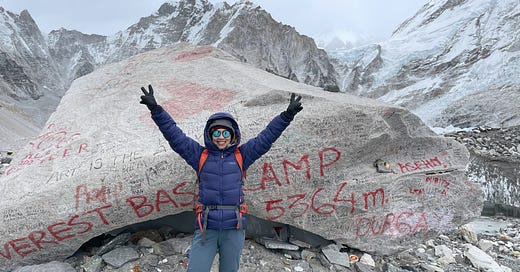


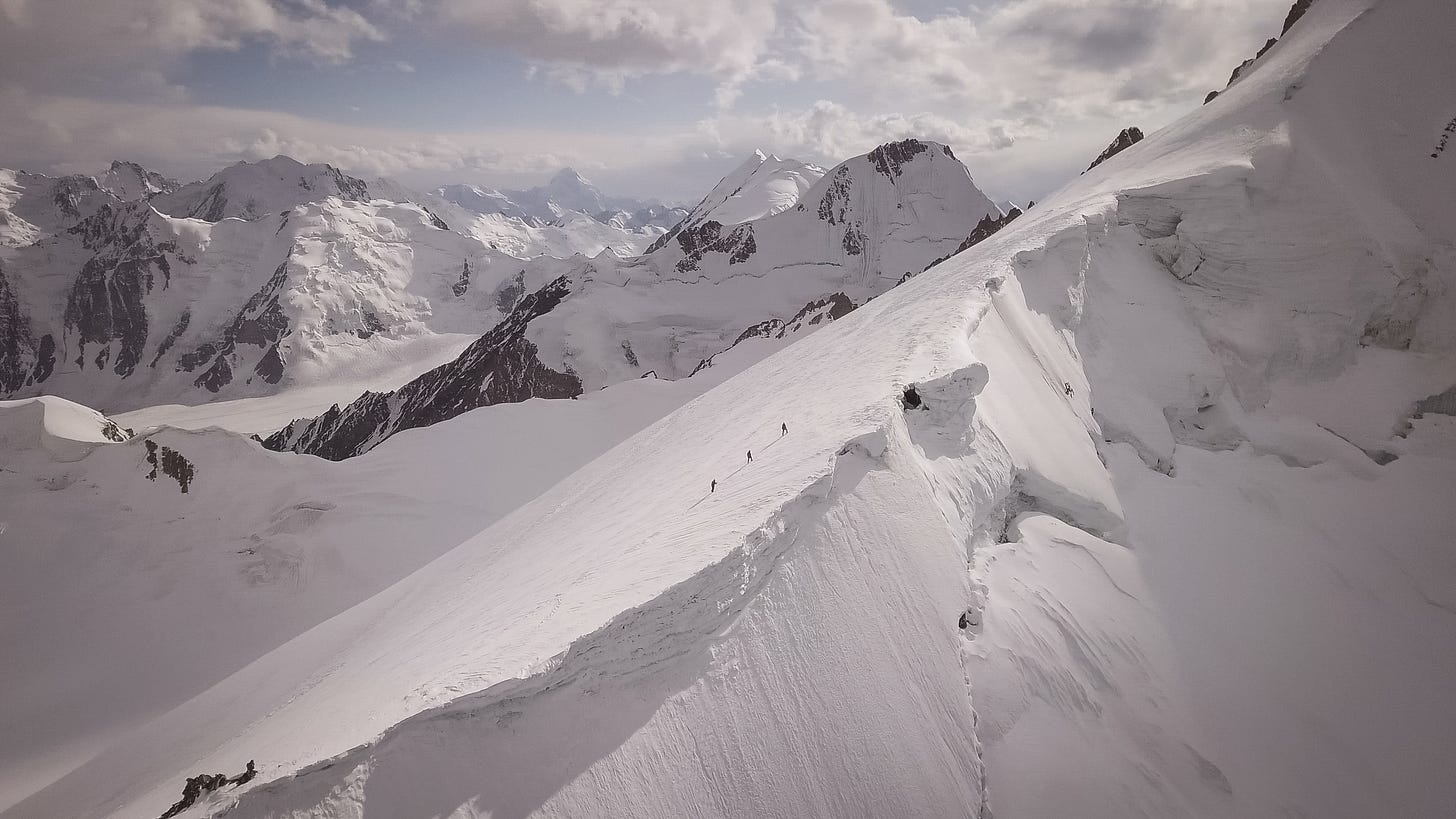
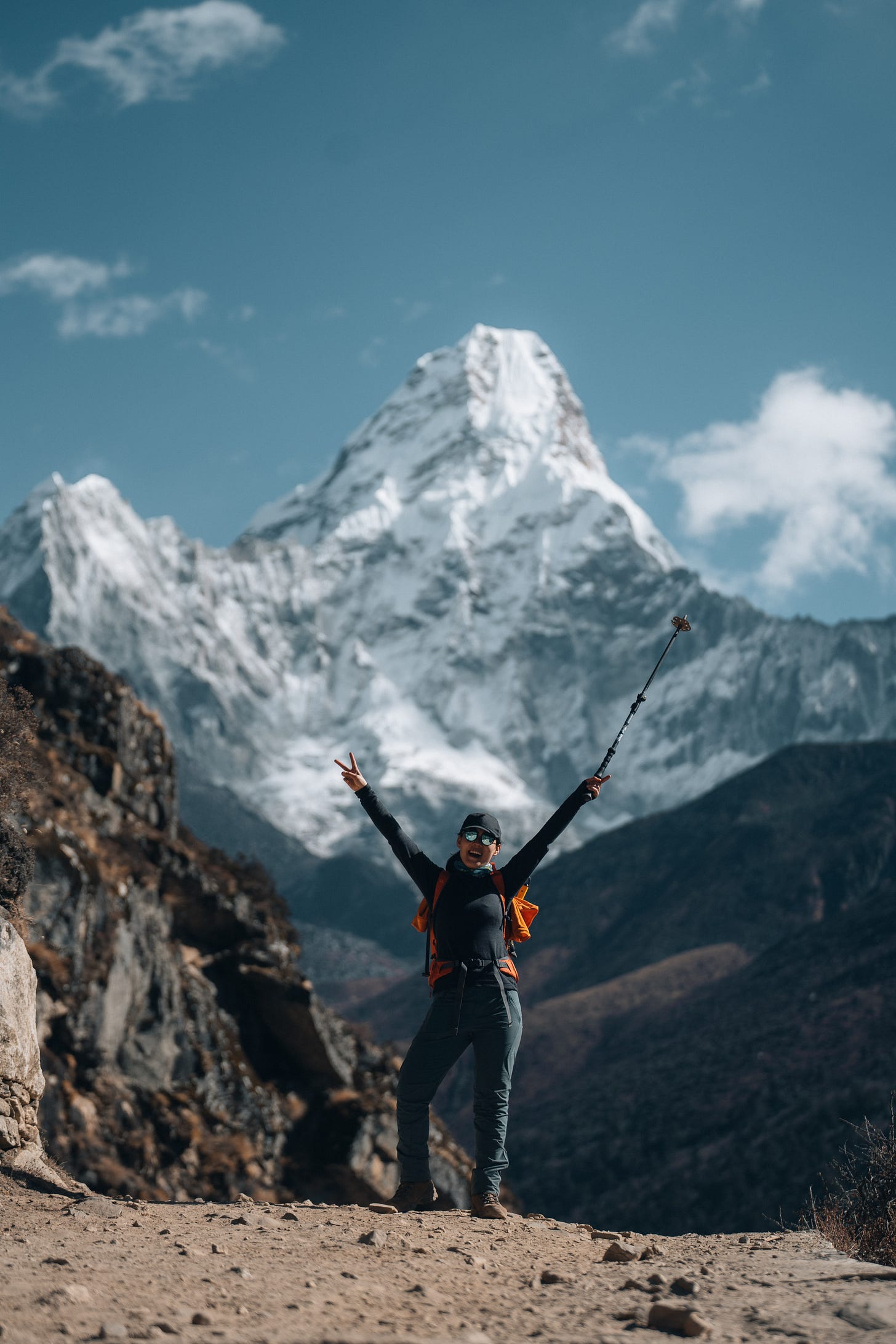


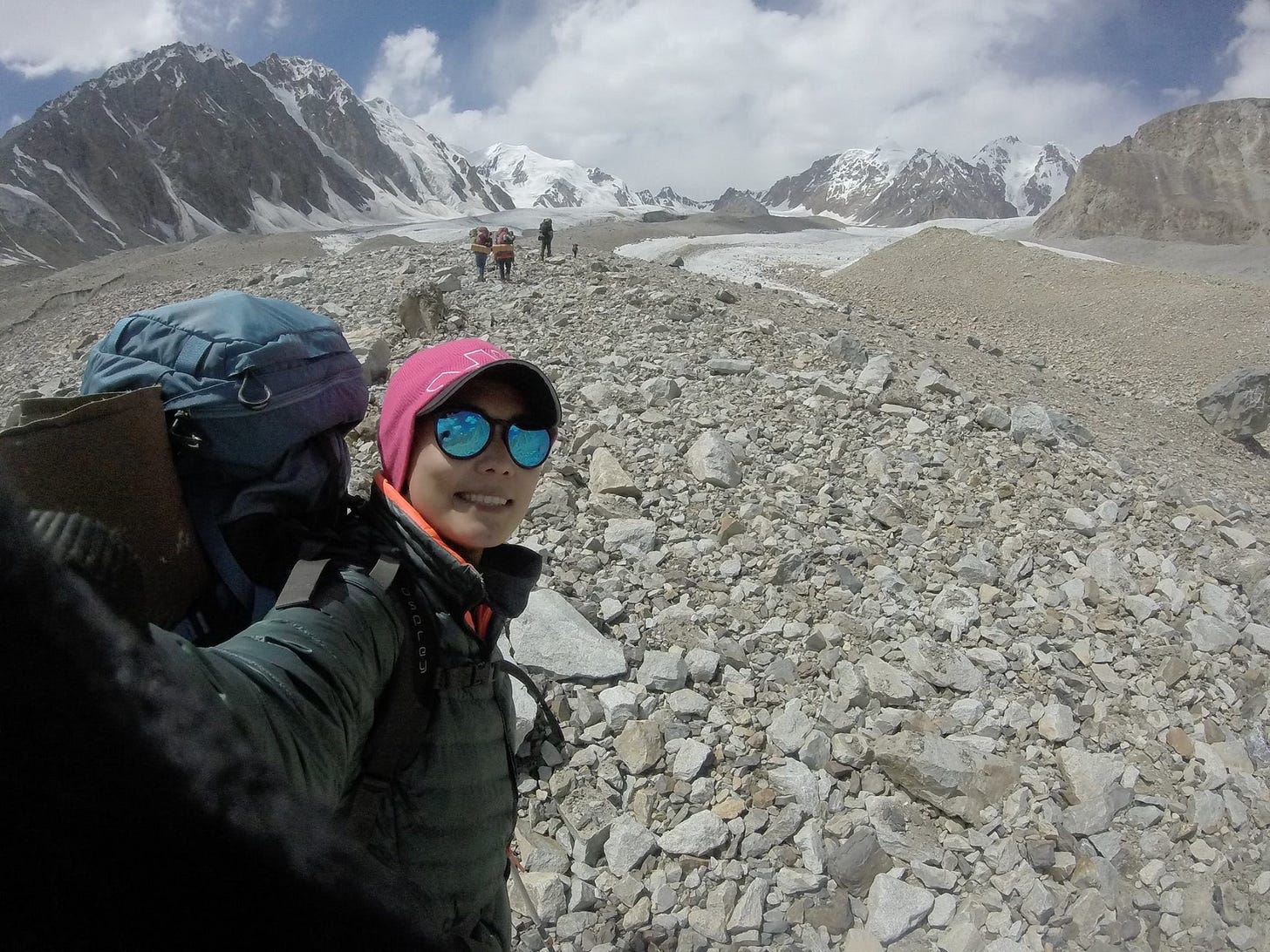
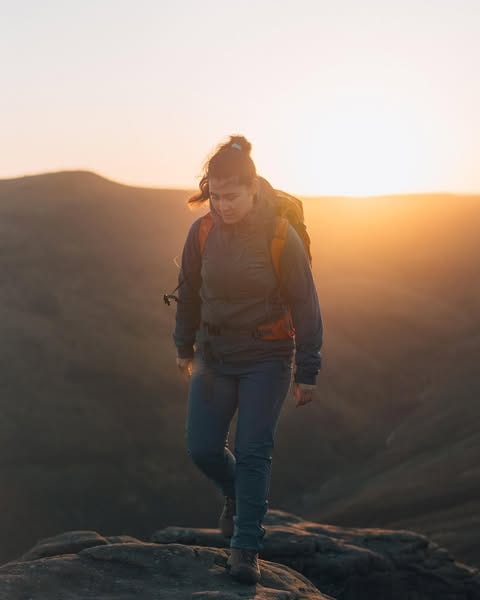
Resilience personified. Good luck. Let's hope, if Freshta completes the challenge she has set herself, it will be celebrated and brought to peoples attention.